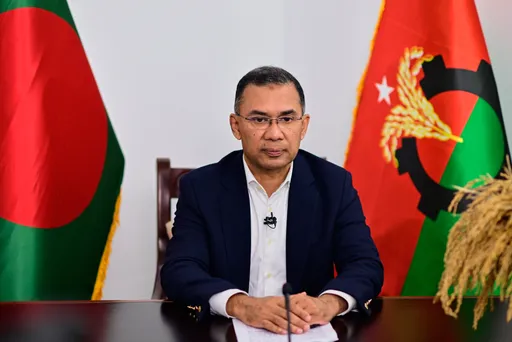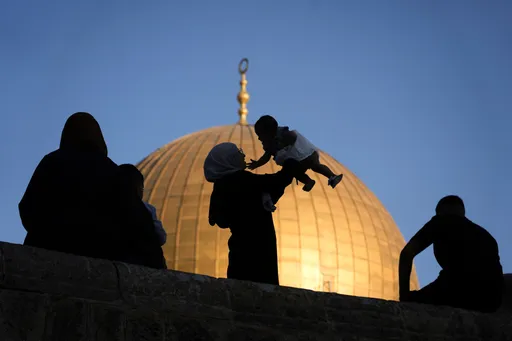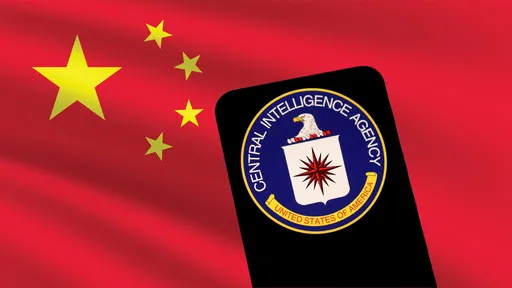In 2002, Ijaz ul Haq, a seasoned Pakistani politician, was on a crisis management tour of the Middle East. A few months earlier militants had stormed India’s parliament building, killing nine people.
New Delhi blamed Pakistan for the attack.
The two nuclear-armed neighbours, who share a long border, were on the brink of war. General Pervez Musharraf, the then president, sent Haq as a special envoy to the member countries of the Gulf Cooperation Council, entrusting him with the task of seeking help.
“We were basically trying to get GCC to pressure India into easing the tension,” he told TRT World.
Haq was delegated with the responsibility as he had a strong rapport with Gulf rulers, thanks in large part to his father, Pakistan's former military ruler Zia ul Haq.
Then in one of the meetings, the head of an Arab state suggested that India be invited to the upcoming session of the Organisation of Islamic Cooperation (OIC), a group of 57 Muslim countries. Haq was asked to take back the message to Musharraf.
“And I said we don’t even have to ask our president to answer that. We made it clear right then that Pakistan will quit OIC if India was ever invited. It was a tense meeting and was wrapped up in 10 minutes,” he said.
Pakistan has blocked India’s inclusion in OIC meetings since the organisation was formed in 1969, citing the continuing human rights violations in India-administered Kashmir.
But next month Indian External Affairs Minister Sushma Swaraj will be present at the gathering in Abu Dhabi, marking a policy shift that many in the Indian media see as New Delhi’s diplomatic win over its arch-rival.
Swaraj will attend as a “guest of honour” at the UAE’s invitation and will address the opening session.
“This would be really embarrassing for Pakistan especially considering what’s happening in (India-administered) Kashmir right now,” said Haq.
New Delhi has launched a crackdown against political activists and pro-independence leaders since a February 14 suicide attack by a local militant in Kashmir killed more than 40 Indian paramilitary troops.
Kashmiris have reacted strongly to the OIC’s invitation to the Indian minister. Hurriyat leader Syed Ali Geelani said it was like “rubbing salt on our wounds.”
A change of heart?
India, where Muslims make up the largest minority group, was part of the OIC’s first meeting in Rabat, Morocco, in 1969. But its representatives were forced to pull out in the aftermath of riots in India’s Gujarat the same year, in which hundreds of people were killed - most of them Muslim.
“General Yahya Khan, who was Pakistan’s president at the time, objected to including the Indians when Muslims were being slaughtered,” Doctor Sheikh Showkat, a Kashmiri political analyst, told TRT World.
There appears to be some change in Pakistan’s policy, he says something that could even help open up dialogue on Kashmir, where the majority of people see India as an occupying force.
“If we look at it from an Indian perspective, it’s trying to build bridges with the Muslim world, which happens to be on its south, on its north and on its west,” he said.
New Delhi’s desire to improve relations with Muslim countries could motivate its leaders to settle its dispute with Pakistan and may facilitate the “resolution of Kashmir issue,” according to Showkat.
Swaraj’s presence at the OIC gathering will only be symbolic. India, a country with the world’s second largest Muslim population, is still not a full member and it remains unclear if it has been given the observer status, which the group has granted to only a few non-Muslim countries.
Haq says Swaraj’s presence at the plenary session could be an attempt to gauge Islamabad’s response. “They might be testing the waters,” he explained.
Pakistan’s foreign ministry spokesman, Mohammad Faisal, did not respond to TRT World’s request for comment.
Islamabad’s muted response could be a sign that it’s looking for avenues to hold talks with India, Dr Shaista Tabassum, a Karachi-based international relations expert, told TRT World.
“It’s quite possible that they are not able to meet and talk anywhere else. Maybe this could offer a better environment,” she said.
Some news outlets have also hinted at a possible meeting between Pakistan’s foreign minister Shah Mehmood Qureshi and Swaraj on the sidelines of the summit.
But if India ever becomes an active member in the OIC, it will try to strike down any Pakistan-sponsored resolution on Kashmir, said Tabassum.
“That’s where Pakistan’s diplomacy will come into play and how much pressure it can exert on the members,” she said.























